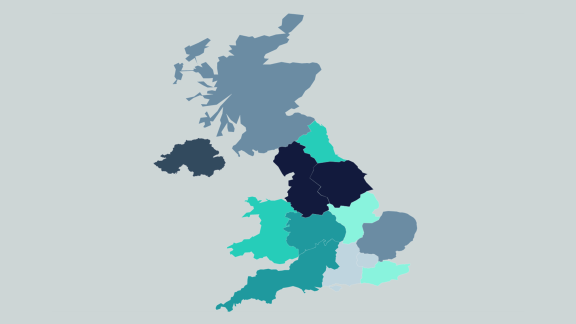Protecting patients: enhancing safeguarding in healthcare

In this blog, Selina Brumant, stakeholder engagement manager at the Disclosure and Barring Service (DBS), explores how a joint approach with NHS Employers has reinforced the understanding and implementation of safeguarding measures for the employment of staff.
Background
Since our first strategic meeting, the DBS and NHS Employers have been engaging on a more operational level by sharing data between organisations and hosting roundtable conversations with senior NHS colleagues. These have been invaluable in helping us understand the challenges faced and offering an opportunity for us to listen to different perspectives and suggestions for our services.
Delivering events for employers
A key collaboration has been the facilitation of bespoke workshops about DBS products and services, where topics have included DBS checking processes, the legal duty to refer, the Update Service and many more aspects of criminal record checks. These virtual workshops, delivered as webinars, have been refreshed and expanded annually to cover more themes and address evolving needs within the healthcare sector.
The series of webinars has been well attended every year, with up to 300 delegates from NHS organisations attending each workshop. The DBS has seen an increase in barring referrals across all sectors, and we hope that the introduction of these workshops and similar events has contributed to this.
We have received much positive feedback from the workshops and attendees have reported having a better understanding of the legal duty to refer, as well as a better understanding of how and when to make a barring referral. These workshops are testament to the fact that, when DBS and the NHS work together, we can more adequately safeguard society. In particular, patients in receipt of healthcare services.
The crucial role of regular re-checks and the Update Service
Sharing information and education is key to safeguarding. The DBS is continuing to collaborate with NHS Employers to build on areas where more information or education may be needed, so that NHS and DBS can work to ensure that safer recruitment and employment practices in the NHS is of the highest possible standard.
An area we would like to promote is the immense value that periodically re-checking DBS checks, or employees signing up to the Update Service, can provide in terms of safeguarding.
We have been able to gather a series of real-life examples where re-checks and Update Service subscriptions have been vital in preventing harm to vulnerable groups, including children.
NHS real-life cases
An individual applied for a healthcare facilitator role and joined the Update Service. Within six months, as part of a routine check of the Update Service by the employer, they were notified to a change of status and a disclosure revealed new information regarding serious allegations related to a service user's care, resulting in dismissal for gross misconduct. Without the Update Service, this information would have remained unknown to employers.
In another case, a healthcare professional who joined the Update Service had information appear on a new disclosure relating to allegations of theft and fraud by abuse of position. The Update Service ensured employers were aware that this new information was available.
A further example involved the Update Service alerting employers to new information about a medical professional who was accused of alleged drug-related offences, theft with the intent to supply, a case that remains ongoing. Again, without carrying out routine checks of the Update Service, employers would have had no knowledge of these concerns about their employee.
Similarly, recent DBS re-checks have revealed important new information about healthcare applicants that would have been missed without employers performing re-checks:
- A nursing and midwifery applicant received a caution for sending a photograph or film of a person in intimate state without consent.
- A healthcare assistant applicant received a conviction for assault occasioning actual bodily harm.
- A primary care nurse applicant received a conviction for assault by beating of an emergency worker.
These cases highlight how critical regular re-checks, and the Update Service, are for maintaining the highest standards of safeguarding in healthcare settings. While the cases above may be relatively rare, each one represents a significant safeguarding risk that has been successfully mitigated by employers taking a proactive approach to vetting their employees. This small investment in regular checks has huge value in terms of the enhanced safety and protection of vulnerable people.
The DBS encourages all colleagues in the NHS to engage with DBS workshops and to consider how the Update Service and regular re-checks can strengthen existing safeguarding procedures. Together, we can ensure that the NHS continues to be a safe environment for both staff and patients.
Contact
If you have queries about the DBS Update Service or any of the application processes you can find contact details for your regional DBS outreach advisor on the gov.uk website.
Resources
The 2025 DBS webinar series has now concluded, however you can watch back all three recordings on the web page.
There are also supporting resources available, including the criminal record checks standard and DBS Update Service employer guidance.



